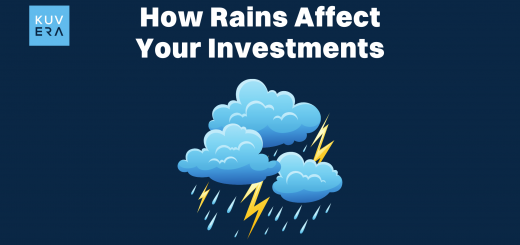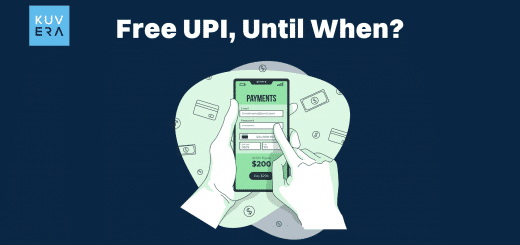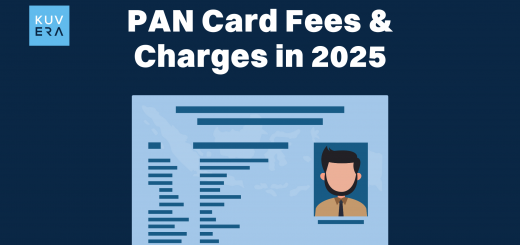Introduction
Pharma ETFs (Exchange Traded Funds) have been in focus since the Covid-19 pandemic stuck India. In this article, we will be discussing what is a pharma ETF, a list of best Pharma ETFs in India, and things which one should consider before investing in them. But before all that let us first understand what a mutual fund is and what an ETF is.
What Is A Mutual Fund?
A mutual fund is a type of investment where investors pool their funds to purchase a portfolio of stocks, bonds, or other securities in order to benefit from competent portfolio management and diversification at a fair price. A group of investment managers and research analysts choose the securities for actively managed funds. The same advantages experienced by large institutional investors are available to those investing small amounts of money in mutual funds.
At the conclusion of each trading day, the “net asset value” (NAV), or price of a fund, is determined by dividing the entire value of the securities in the portfolio by the number of outstanding shares of the fund. The value of each individual security held by the fund at market closure time affects the NAV each day.
Compared to holding individual stocks in your financial portfolio, mutual funds have a number of benefits.
- Professional Leadership
A mutual fund gives investors access to full-time, qualified money managers who are equipped to actively buy, sell, and monitor investments. These managers have the knowledge, resources, and expertise to do so.
- Diversification
You can hold a wide range of securities through mutual funds for a lot less money than you could on your own. If the value of one investment falls, the value of another investment in the portfolio can rise. You can benefit from opportunities in different asset classes throughout shifting market circumstances by owning shares in various types of funds.
- Affordability
With modest investment minimums, mutual funds allow even novice investors to benefit from expert asset management and diversification. Since mutual fund handles bulk investments it gets benefits of scale in terms of expenses incurred in making an investment. If individual investors try to make an investment which mimics the portfolio of a mutual fund they will incur higher charges and will spend a considerable time undertaking those investments.
- Liquidity and Comfort
The majority of mutual funds permit purchases and sale of mutual funds units on any business day. To assist you in creating a nest egg, many funds let you set up a regular, automatic purchasing programme.
Taxation Of Mutual Funds
Depending on how long the investors owned the units, investors may also be liable for capital gains tax when selling mutual fund units. Mutual funds taxation is different for equity funds and different for debt funds.
In the case of equity mutual funds if you sell your mutual funds units after holding them for one year or a longer period you will be required to pay long-term capital gains tax at the rate of 10 per cent. If you sell your equity mutual fund units before 1 year you will be required to pay short-term capital gains tax at the rate of 15%.
In the case of debt mutual funds if you sell your mutual funds units after holding them for three years or a longer period you will be required to pay long-term capital gains tax at the rate of 20 per cent. If you sell your debt mutual fund units before 3 years, your gains will be added to your income and will be taxed as per the rate applicable to your income tax slab.
Fees And Expenses Associated With Mutual Funds
To pay for costs associated with running a mutual fund, which includes professional management, transaction fees for buying and selling assets, fund accounting, legal fees, and other general operating costs, mutual funds impose fees called the expense ratio. Also, if the investors elect to sell their units before holding them for a predetermined period of time, they can be assessed with a redemption fee.
Each fund’s expense ratio is listed as the annual percentage charge it makes to cover its costs. The fund’s returns will be reduced by the expense ratio.
Now that we are clear about what a mutual fund is let us understand what an ETF is.
ETF: What Is It?
A basket of equities known as an ETF represents a mutual fund that is listed on the stock exchange. The net asset value of the stocks it is investing in is reflected in the ETF prices. It has many similarities to normal unlisted mutual funds. Exchange Traded Funds (ETFs) are typically really passively managed mutual funds that are listed and traded on exchanges just like equities. ETFs strive to monitor the relevant index or the commodity which they are tracking and reproduce its returns, You require a Demat and trading account with a stockbroker in order to trade in ETFs.
How Do I Choose ETFs?
When investing in ETFs, investors need primarily consider three factors:
- Low total expense ratio
- Tracking error: The difference between the index return and the ETF return is known as tracking error. Because you are truly investing in the index as an investor, this performance metric is crucial.
- Liquidity: Since ETFs are purchased and sold on stock exchanges, as opposed to mutual funds, liquidity is a crucial consideration for ETFs. When you wish to sell your ETFs, you might not be able to locate enough buyers if an ETF is not highly liquid.
ETF Categories
Here are some examples of popular ETF category schemes:-
The majority of ETF product offerings are index ETFs. It is designed to follow a specific market index, such as the Sensex, Nifty, BSE 100, Nifty 100, etc. Index ETFs invest in a group of stocks that closely resemble the index that the ETF seeks to replicate. You should only anticipate receiving the index returns that your index ETF is tracking when investing in an index ETF.
-
Gold ETF
In the form of a Gold ETF, investors can purchase gold as a financial asset. A gold exchange-traded fund, or gold ETF, tracks the price of gold on the market and is valued at exactly the same as pure 24-carat actual gold. The units of the Gold ETFs are exchanged on the stock exchange just like shares of a firm.
-
Bank ETF
A basket of publicly traded banking stocks is what bank ETFs invest in.
-
International ETFs
An international ETF invests mostly in assets with foreign bases. These ETFs may follow global markets or a benchmark index for a particular nation. If you wish to diversify your assets into international stocks, these ETFs may be a suitable choice.
Why should One buy Pharma ETFs?
ETF Could Be A Better Option
Exchange Traded Funds only invest in the Index or the commodity they are tracking, thus there is little room for outperformance or underperformance. The ETFs might be a wise choice if your investment goal is to achieve market/Index returns.
Their Priority Is Performance
The indexes, which are built using a market capitalization-based methodology, eliminate or at the very least minimise the weight of underperformers in the index portfolio. ETFs consequently cut the weight of underperformers in their portfolio or do away with them altogether if they are tracking an index which is most often the case.
Low Price
ETFs have a significantly lower expense ratio than mutual funds. ETF fee ratios can be as low as 0.25%, compared to mutual fund expense ratios, which are typically between 1.5% and 2.25%. Mutual funds might not be able to outperform ETF returns over the long term unless they provide a significant amount of alpha.
Simplicity
ETFs, as opposed to actively managed funds, make investing simpler. You are not required to evaluate prior performance, comprehend the investment philosophy of the fund management, or comprehend how the fund has fared in both bull and bear markets, etc. Most exchange-traded funds (ETFs) follow large-cap indices such as the Sensex, Nifty, BSE-100, Nifty 100, Nifty Next 50, etc. Simply choose an index, invest in a cheap ETF that tracks that index, and you’re done.
What Are Pharma ETFs?
Prior to COVID, only three types of ETFs were available in India: index, banking, and gold. But seven pharma ETFs have appeared on the Indian market in recent years (some are still in the NFO stage). These ETFs follow the S&P BSE Healthcare index or the Nifty Healthcare TRI index.
Indian pharmaceutical Industry Prospects
The pharmaceutical sector is expanding in India for two key reasons. The first is a result of the high demand for Indian-made medications on a global scale. The second is due to the potential for future growth.
Demand
India is the world’s biggest exporter of generic medications. What are generic medications? Other manufacturers are permitted to reproduce the drug’s formula after the patents on the original medications expire.
These medications are referred to as generics. A generic medication has the benefit of being more affordable. Why? Because the corporation need not conduct any research, development, or clinical trials in order to make it. Generic medications made in India are of high quality and affordably priced. As a result, their drugs are in high demand all around the world.
India’s Pharma ETFs
ETFs follow industry-standard benchmarks like the S&P BSE Healthcare Index and the Nifty Healthcare Index. Twenty stocks make up the nifty index. Three of these stocks are in the healthcare sector, and the remaining four are in the pharmaceutical sector.
Conclusion
For the Indian stock market, pharma ETFs are new. The debut dates for all of the aforementioned Pharma ETFs are in 2021. Given the heightened focus on the healthcare and pharmaceutical industry in light of the Covid-19 pandemic, there is a high probability that much more pharma ETFs will be launched in India.
Do you know you can invest in mutual through the Kuvera app which is the best zero commission mutual fund investment app.
Step 1: Download the Kuvera app or visit our website.
Step 2: Create your account on Kuvera by completing the mandatory KYC procedure. This will hardly take a few minutes. Once that’s completed, select the ‘Invest’ option on our homepage after which you can select ‘Mutual Funds‘
Step 3: Kindly go through the list of all zero-commission direct plans of mutual funds to start investing.
Interested in how we think about the markets?
Read more: Zen And The Art Of Investing
Watch/hear on YouTube:
Start investing through a platform that brings goal planning and investing to your fingertips. Visit Kuvera.in to discover Direct Plans and Fixed Deposits and start investing today.
#MutualFundSahiHai #KuveraSabseSahiHai!











